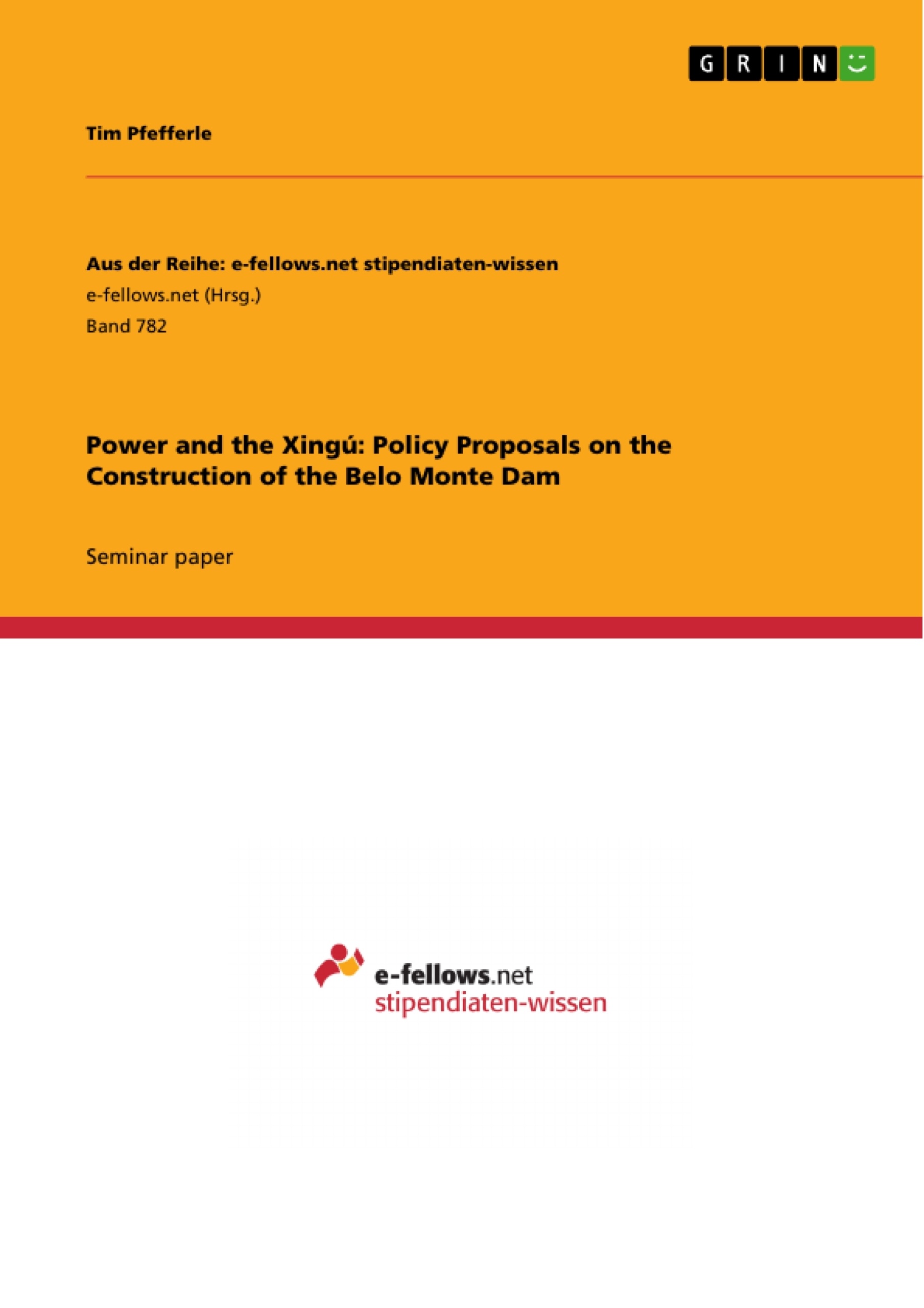This paper provides policy options with regard to the construction of the Belo Monte dam, a large hydroelectric project in the Amazon which is supposed to add significant capacity to the Brazilian energy grid. The economic, social and environmental impacts are taken into account in assessing the viability of the project.
Inhaltsverzeichnis (Table of Contents)
- Introduction
- Policy Options
- Option A: Extensive Dam Construction
- Policy Option B: Belo Monte as Single Site
- Policy Option C: Energy Policy without Belo Monte
Zielsetzung und Themenschwerpunkte (Objectives and Key Themes)
This policy proposal examines the viability of constructing the Belo Monte hydroelectric dam in Pará, Brazil. The proposal argues that the dam will not achieve its intended results and will lead to unforeseen negative consequences. It suggests an alternative energy mix and contrasts it with the dam project.- The economic, environmental, and social implications of the Belo Monte dam
- The challenges of reconciling economic growth with environmental protection in Brazil
- The status of minority groups within a representative democracy
- The impact of large-scale hydroelectric projects on indigenous communities
- The viability of alternative energy sources in Brazil
Zusammenfassung der Kapitel (Chapter Summaries)
- Introduction: Introduces the proposal and the main argument against the construction of the Belo Monte dam. Highlights the dam's potential negative impact on the environment, indigenous communities, and Brazil's institutional structure.
- Policy Option A: Extensive Dam Construction: Argues that the construction of the Belo Monte dam, along with other upstream dams, will be driven by a desire for sustained economic growth and energy security. However, it raises concerns about the environmental and social costs of such a large-scale project.
- Policy Option B: Belo Monte as Single Site: Presents a compromise option that acknowledges the potential economic viability of the Belo Monte dam as a single entity. However, it emphasizes the need to consider the significant environmental impact and the potential for the dam to become a "white elephant."
- Policy Option C: Energy Policy without Belo Monte: Advocates for the complete abandonment of the Belo Monte project, highlighting the questionable economic benefits, the serious environmental consequences, and the potential social and institutional impacts.
Schlüsselwörter (Keywords)
The main keywords and focus topics of this text include hydroelectric dams, sustainable development, environmental protection, indigenous rights, energy policy, and the Belo Monte dam in Brazil. The text explores the complex challenges of balancing economic growth with social and environmental concerns.Frequently Asked Questions
What is the Belo Monte dam project?
It is a large-scale hydroelectric project in Pará, Brazil, designed to provide significant energy to the Brazilian grid.
What are the main criticisms of the dam?
Critics highlight its devastating impact on the environment and indigenous communities, as well as questionable economic benefits.
What are the suggested policy alternatives?
The proposal advocates for an alternative energy mix that excludes Belo Monte, focusing on more sustainable and less disruptive sources.
How does the project affect indigenous rights?
The construction threatens the ancestral lands and livelihoods of indigenous groups, raising concerns about their status in a representative democracy.
What is meant by a "white elephant" in this context?
It refers to a project that is extremely expensive to build and maintain but fails to deliver the expected economic or social value.
- Quote paper
- Tim Pfefferle (Author), 2012, Power and the Xingú: Policy Proposals on the Construction of the Belo Monte Dam, Munich, GRIN Verlag, https://www.grin.com/document/232450



